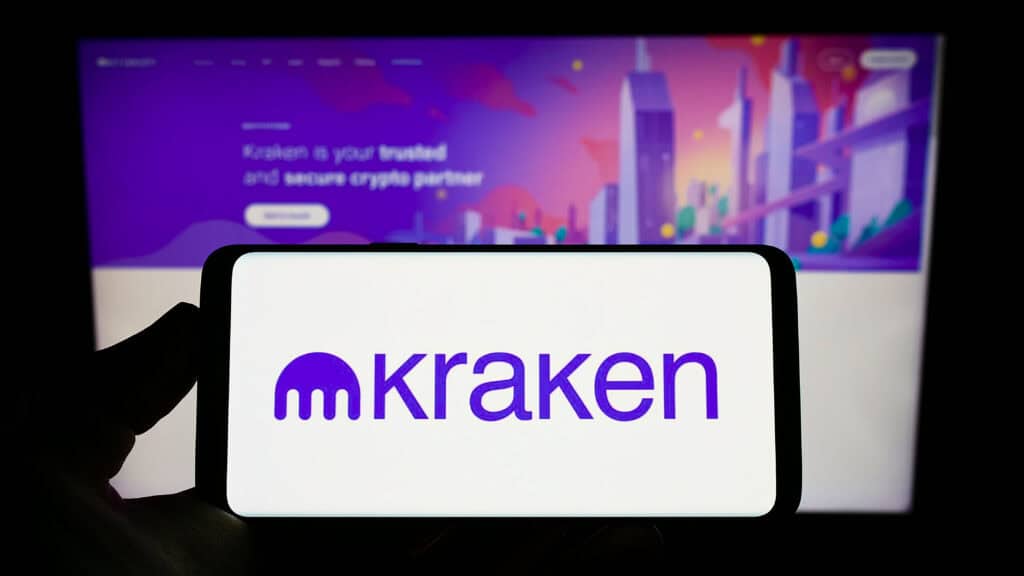
Key Takeaways:
- Kraken Introduces Self-Custody Wallet: Kraken has launched a self-custody cryptocurrency wallet, enhancing user control over their digital assets and ensuring privacy by minimizing data collection and masking IP addresses.
- Wide Compatibility and Support: The wallet supports a variety of blockchains and digital assets including Bitcoin, Ethereum, and more. It also facilitates interaction with DeFi tokens, NFTs, and decentralized applications via Wallet Connect.
- Focus on Security and Transparency: The Kraken Wallet features robust security measures such as mobile biometrics and password protection, and its open-source code is publicly available on GitHub for community review and contribution.
Kraken has recently introduced its own self-custody crypto wallet, designed to give users increased control over their digital assets.
This move follows a growing trend among centralized exchanges (CEXs) like Binance, OKX, Coinbase, Bitget, and Bybit, which have also launched similar offerings.
Meet the brand new Kraken Wallet: simple, secure, powerful.
— Kraken Exchange (@krakenfx) April 17, 2024
🗝️ Manage multiple wallets
🌐 Multi-chain support
📊 Manage NFTs & DeFi positions
🔒 IP privacy & Encryption
📖 No client side tracking
Download now ⤵️https://t.co/EYHweJGDzV pic.twitter.com/jLbldh9j6k
Kraken’s new wallet allows users, whether they are existing Kraken clients or not, to connect seamlessly with the decentralized financial system.
The wallet is compatible with multiple blockchains, supporting a variety of assets including Bitcoin, Ethereum, Solana, Optimism, Base, Arbitrum, Polygon, and Dogecoin.
The wallet’s application is available on iOS and emphasizes user privacy.
Kraken Wallet is out!https://t.co/bmssyRSBtc
— Dave Ripley (@DavidLRipley) April 17, 2024
Kraken has minimized data collection, avoiding even internal analytics to ensure the privacy of its users.
The company enhances user security by routing activity through its infrastructure, which conceals users’ IP addresses and other potentially identifiable information.
Security features of the Kraken Wallet include mobile biometrics, password protection, and an audit by Trail of Bits.
Kraken Wallet is live! Stop scrolling, start downloading 👇https://t.co/EYHweJGDzV pic.twitter.com/Cf3URLyw4h
— Kraken Exchange (@krakenfx) April 17, 2024
Moreover, the wallet’s code is open-source and accessible on GitHub, supporting transparency and community involvement.
The wallet is not limited to storing cryptocurrencies but also supports interaction with decentralized finance (DeFi) tokens, non-fungible tokens (NFTs), and decentralized applications via Wallet Connect.
Kraken also offers around-the-clock customer support to assist users at any time.
Kraken launches self-custodial mobile wallet and releases its open-source code https://t.co/AfhorAmpvd
— The Block (@TheBlock__) April 17, 2024
Eric Kuhn, the product director for Kraken Wallet, highlighted the importance of the initiative, stating, “Kraken Wallet is how we invest in the your keys, your crypto ecosystem which is vital for the existence of permissionless financial access,”
This development comes at a time when exchanges are increasingly exploring self-custody solutions in response to tighter global regulatory scrutiny over their operations.
For instance, Kraken has recently made adjustments to its service offerings in various regions, including discontinuing support for the privacy-focused cryptocurrency Monero in Ireland and Belgium, and halting support for certain stablecoins in Canada.
JUST IN: Kraken Exchange (@krakenfx) released its own wallet app
— BlockNews.com (@blocknewsdotcom) April 17, 2024
– Multiple walletss
– Multi-chain support
– NFTs
– DeFi
– No client-side tracking pic.twitter.com/EGIV03kFbX
The trend towards self-custody is supported by regulatory developments, such as the European Parliament’s decision to remove a limit on cryptocurrency payments from self-hosted wallets and a U.S. court ruling that Coinbase Wallet does not meet the definition of a broker, thus not falling under certain regulatory requirements.
Kraken’s move into self-custody wallets underscores a shift towards greater user autonomy and regulatory adaptability in the cryptocurrency space.

